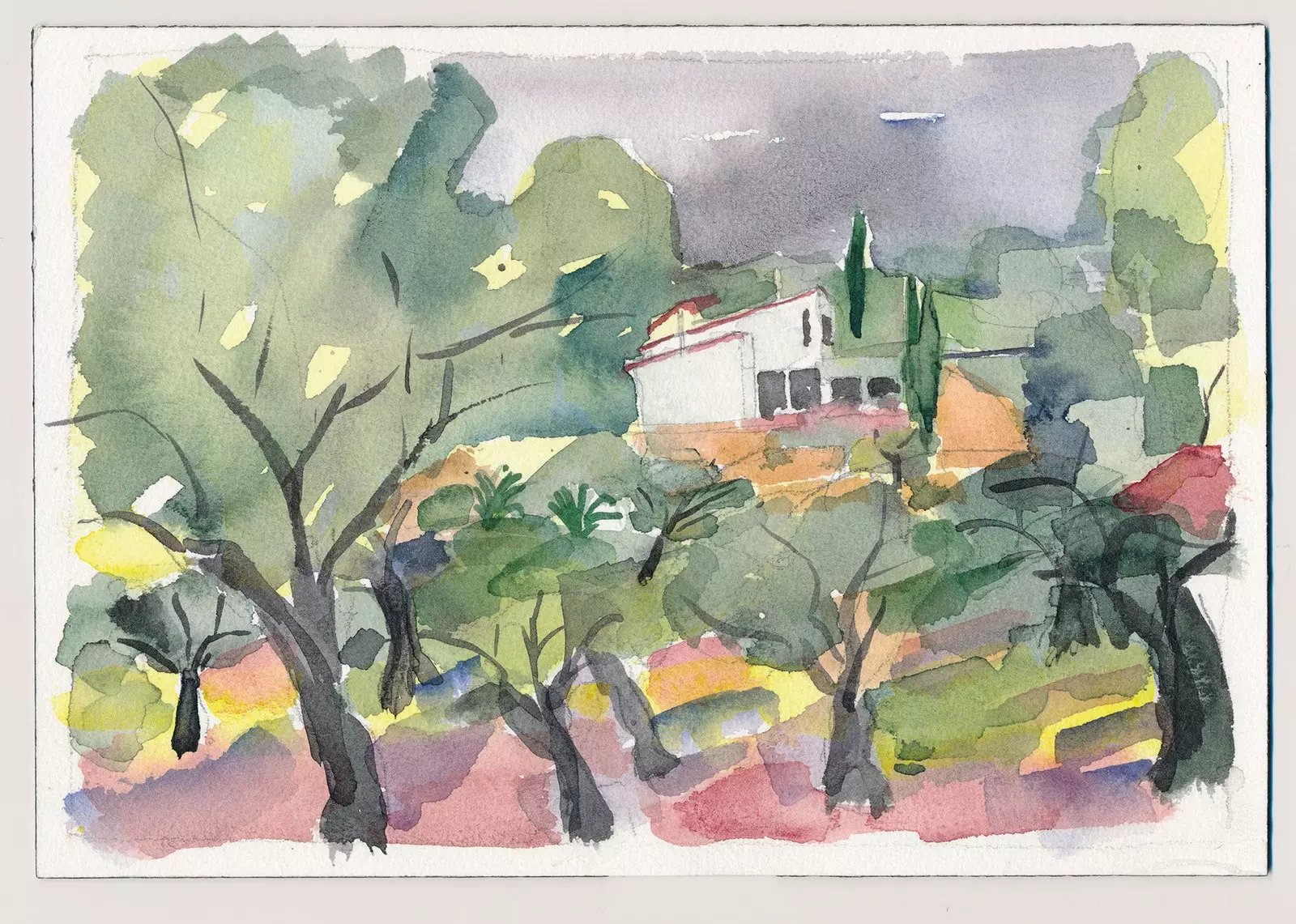
Konrad Laudenbacher's watercolors accompany Julio Llamazares' traveling prose.
"We arrived in Extremadura on March 13, 2020 fleeing from an increasingly ghostly Madrid." Thus begins the recently published book of Julio Llamazares (Vegamián, León, 1955), who when asked if he is a spontaneous or organized traveler, hesitates a bit: “Half and half. I don't know how the others travel. I know you travel three times. When it is imagined and planned, when it is done and when it is remembered and written. Every trip is three trips that follow each other in time”. In the case of his new book Primavera Extremadura. Notes from the natural (Alfaguara), the trip he talks about arose from the exceptional circumstances experienced this year by everyone and his own.
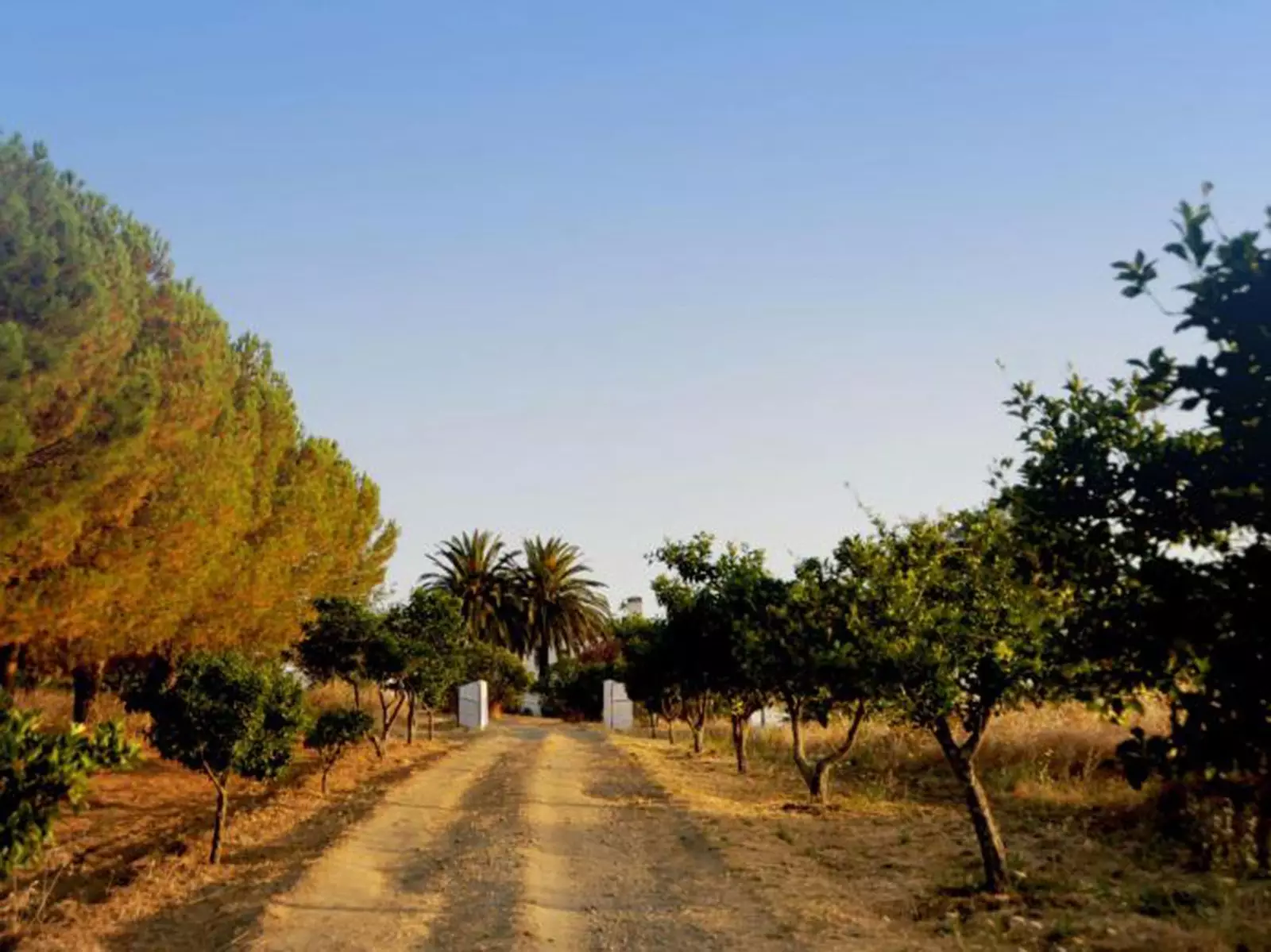
Entrance to the family home where the writer was confined.
“Sometimes the unforeseen things are the most important. I left Madrid before the state of alarm was declared, to a house belonging to my in-laws in the Extremadura countryside, thinking it would be for eight or ten days. We were there for three months and the virus continues to roam freely around there, ”he tells us by phone.
In March 2020, days before all of Spain was confined, Llamazares settled with his family in the Sierra de los Lagares, near Trujillo. The poet and writer, specialized in travel books, author of the Duero Notebook (1999), Atlas of Imaginary Spain (2015), Don Quixote's Journey (2016), The Yellow Rain (1988) and The Sky of Madrid ( 2005), among many others, he lived there a tragic and beautiful spring, which combines his light and poetic prose with the evocative watercolors of Konrad Laudenbacher, his friend and neighbor.
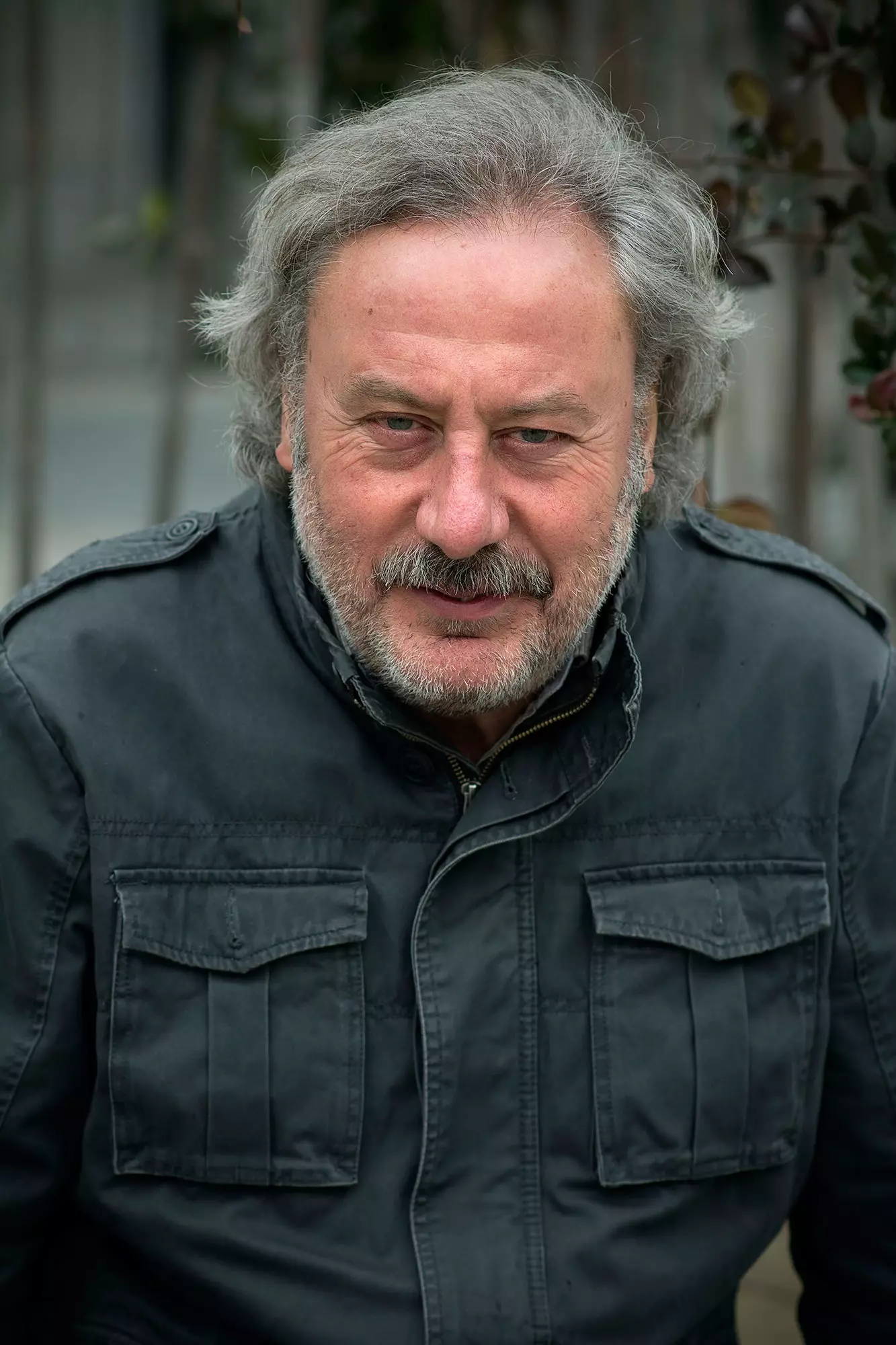
Portrait of the writer Julio Llamazares.
“One of the most repeated laments by the Spanish during the quarantine forced by the pandemic that has ravaged the planet since the beginning of this sinister 2020 (leap year, sinister year, the saying goes) is that spring stole them ”, explains the author in the presentation of his new work. Instead, he gave him a fantastic spring that he enjoyed from start to finish, despite the restlessness and the dramas that were happening around him, some of them starring very close and dear people. And that contrast, pure representation of life, is what he wanted to immortalize on these pages.
“The book arises by chance. Suddenly I saw myself in a fantastic place, but as if I was missing the world and living a wonderful spring. Spring in Extremadura is exceptional. I knew it but I had lived it for a weekend, four days, but not a whole season from start to finish. This sparked the birth of this book.”
In addition, the writer lived not just any spring but, according to the locals themselves, the rainiest in time and, therefore, the most beautiful and spectacular most remembered. Nature, preserved from human intervention, it was filled with light, bright colors and animals in freedom. Life, despite everything, manages to break through.
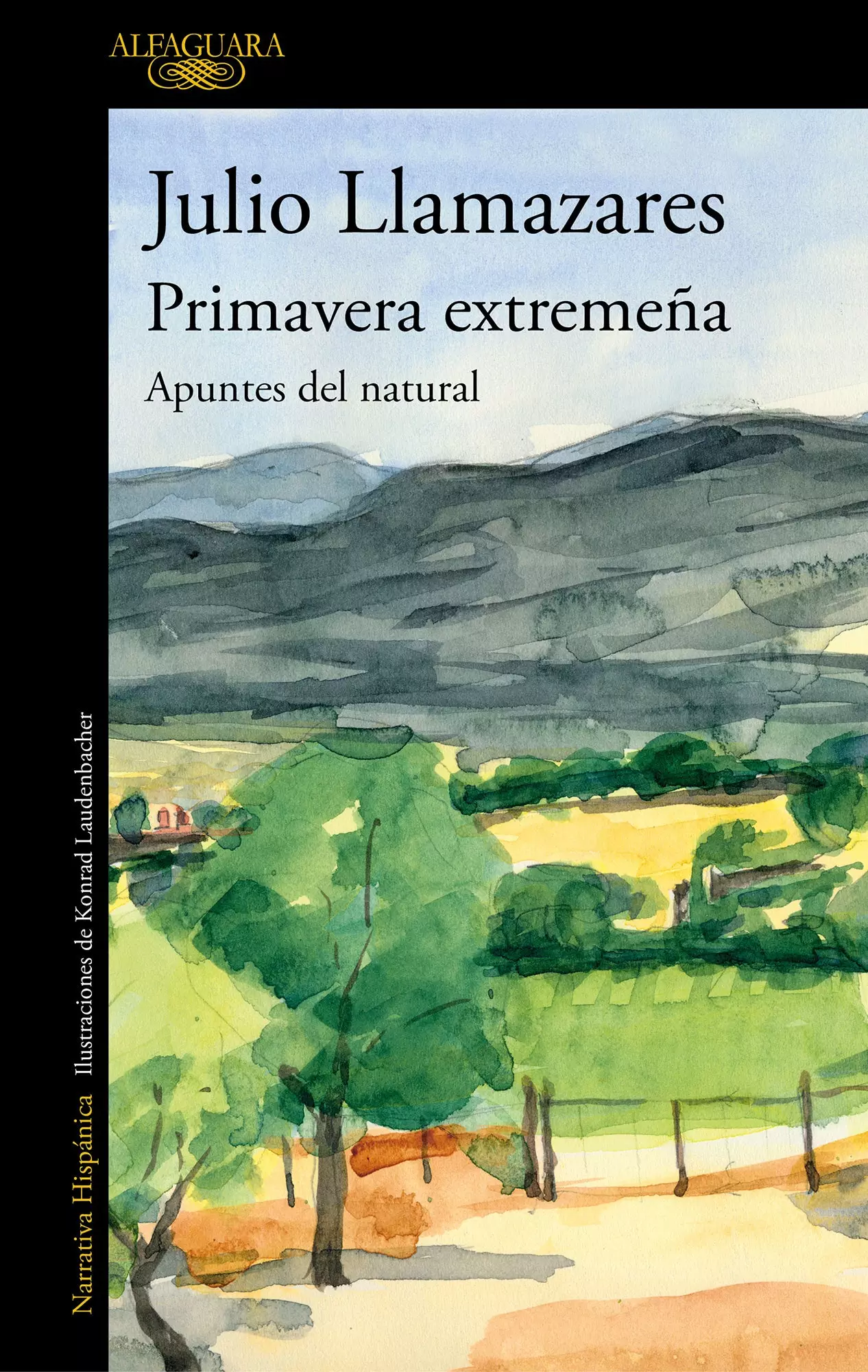
Cover of 'Primavera extremeña', by Julio Llamazares.
Watercolors by Conrad, a German friend who has a house near theirs, completed the work. “We saw each other in the bush, like smugglers,” jokes Llamazares. “On my birthday they gave me a watercolor of his and from there the spark of the book arose. I tried to do what he did, but with writing. This book is a song to life in the midst of death. We are experiencing a pandemic with tragic and, at the time, unpredictable consequences. Nature followed its course, exploded, animals and fields followed their own with more freedom than ever. The contrast between life that continued and death is what I have tried to convey. A bit like watercolors, I have tried to write watercolors. Notes through which I describe what was happening and what was also reaching me from the media, the telephone... with the perspective of my story, that kind of almost unreal nebula”.
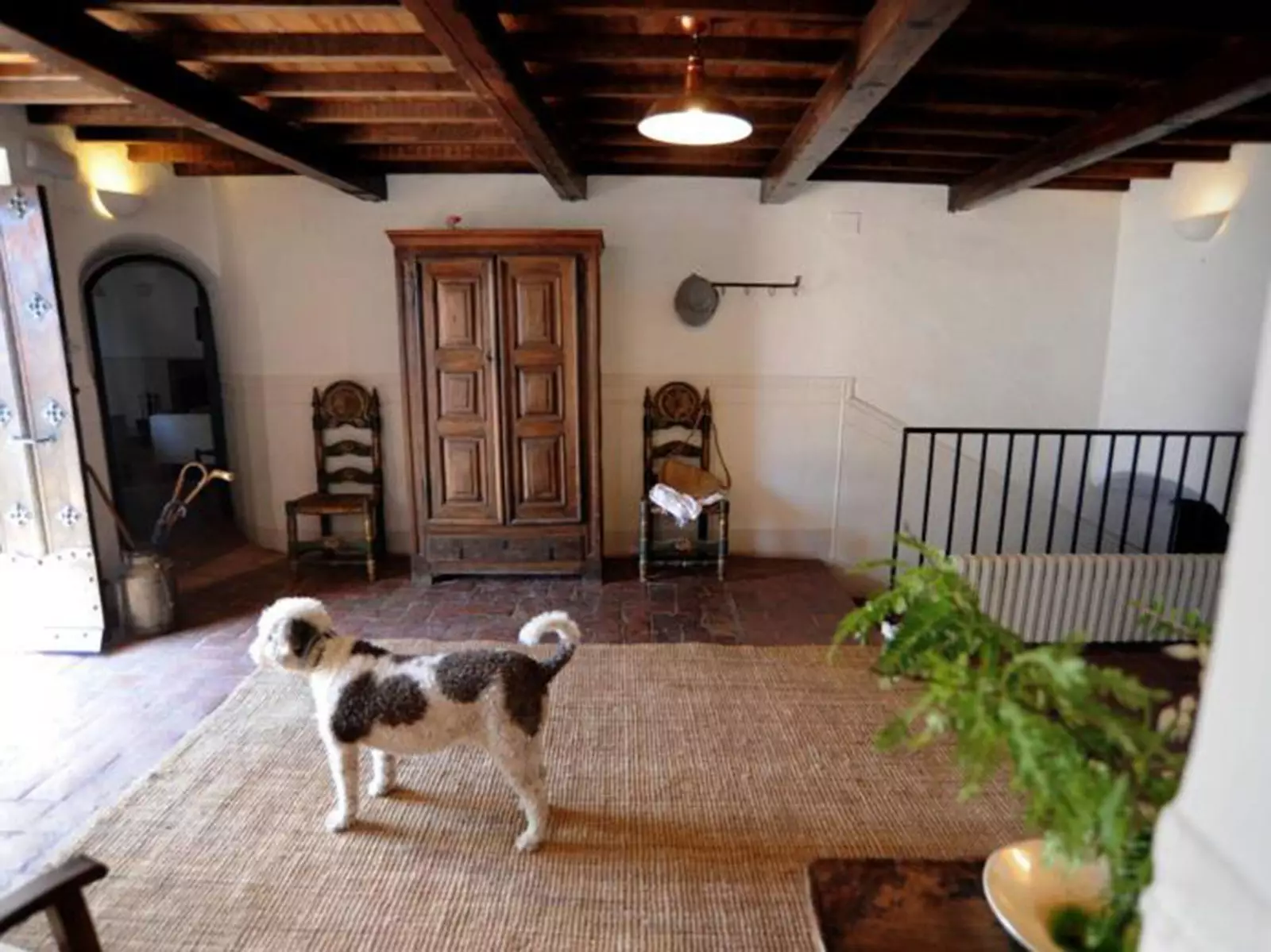
Interior of the Extremaduran house.
TO TRAVEL IS TO DISCOVER
“The life of the writer has something of confinement by definition. You spend many hours with yourself thinking about things, whether sitting at the table, walking or traveling, strolling through the city. The condition of the writer is that of the confined, which in this case was a double confinement”, he recalls. Llamazares, who always spends many hours reading, writing and watching movies. “By losing social time, yes, I dedicated even more to these occupations. Or, for example, to prepare a meal calmly, which is also a pleasure in life”.
The biggest change for him was living an entire season of the year on the front line. “As a child I lived in a town, until I was 12 or 13 years old. I felt the seasons more directly. In the city they are perceived less, unless you go to parks, etc. And light pollution prevents you from seeing the starry sky, you can't hear the birds well. One thing that was commented a lot in the confinement is that the city was full of birds. Not that it was full, you could hear them more because there were no cars or people on the street.
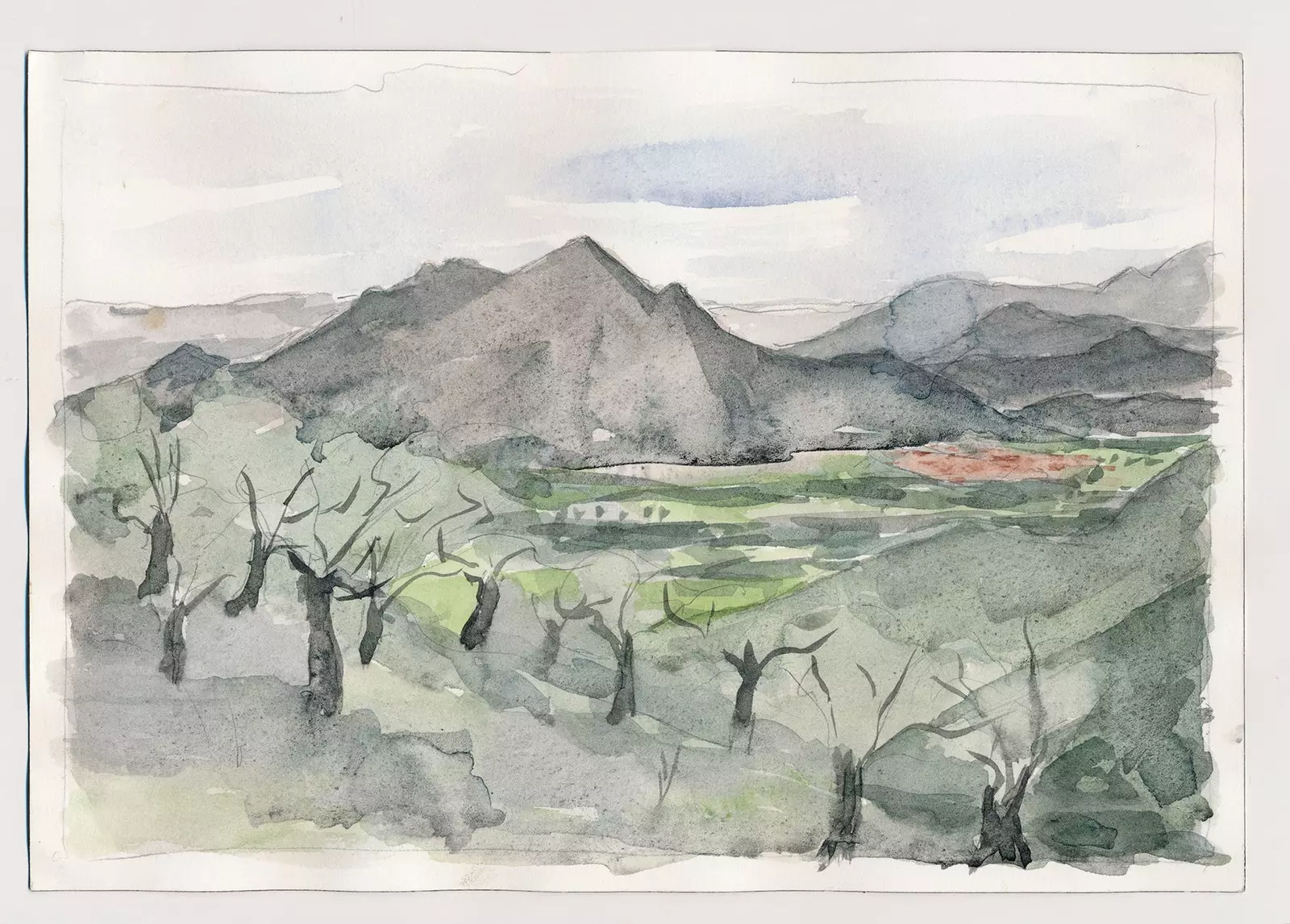
Watercolor by Konrad Laudenbacher for 'Primavera extremeña'.
The birds were heard again, indeed, and many people reencountered his desire to rediscover Spain. “All crises make us rethink many things. Both personal and family or social. The crisis gives rise to reflection. We rethink things that, sometimes, in normal life (which I don't know if it's very normal or not) then we leave sideways. We run from one side to the other. We do not notice many of the things that happen around us or whether the life we lead is the one we would like to lead.
"When there is a crisis of any kind, people suddenly stop, forced, and rediscover things that they had consciously or unconsciously put aside, such as the enjoyment of the landscape, reading, time for oneself, conversation. I am sure that these months of confinement have been talked about more than in twenty years of marriage or cohabitation. It has served for many discover themselves and what they have around, that includes the geography and the environment, which we always leave for a better time. And there are those who realize that life is passing them by and they don't know their own country. Without a doubt, crises leave their mark on the way of thinking”.
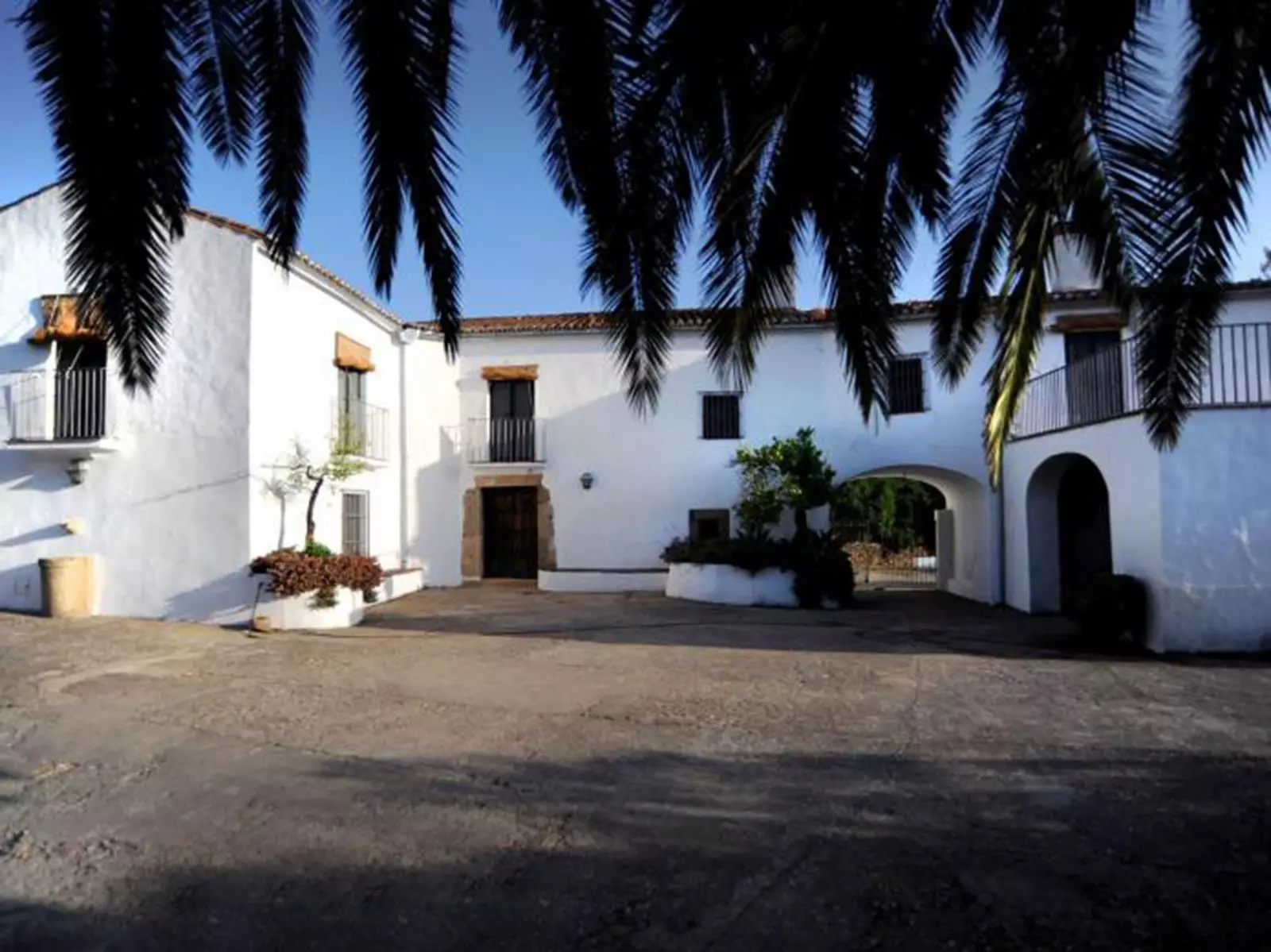
Llamazares spent three months in this family home and turned his experience into a book.
For good? “Sometimes for the better and sometimes for the worse. The crisis has also brought out, on occasions, the worst of the human condition, the man for himself. As a song from The Last in Line used to say, from years ago, 'when poverty comes in the door, love goes out the window'. When there is social and economic well-being, people are respectful and sociable. When they paint coarse, the best of many comes out... and the worst of others”, reflects the writer, who considers that some will now travel differently but many others will continue as before. “I believe that all this will change us, but at the same time I am very pessimistic, because in the end history is a gear and as soon as the vaccine arrives, which we hope will be soon, well little by little we will return to our old ways and repeat in substance the same life we led”.
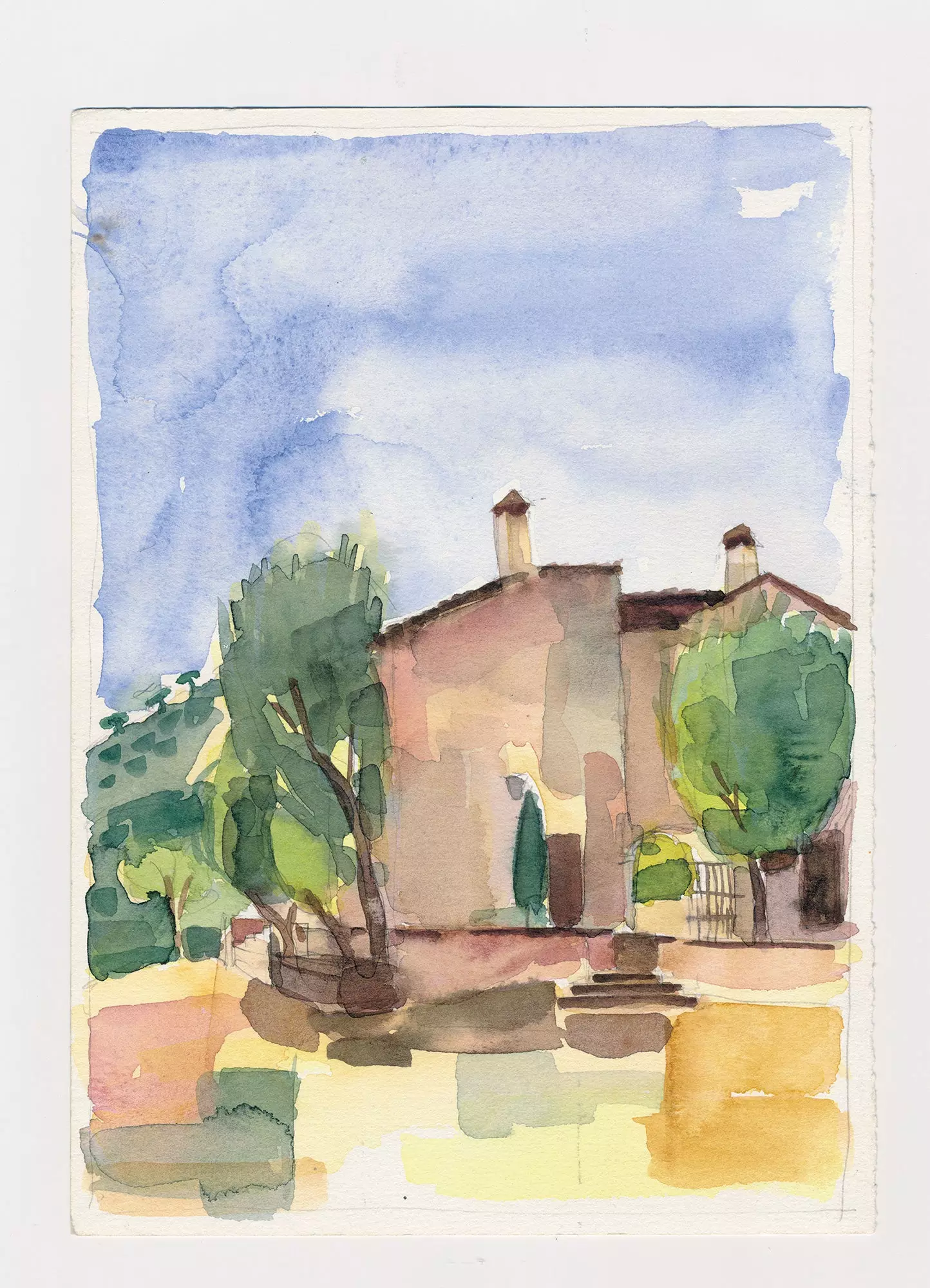
Llamazares has attempted to write like a watercolor, describing his experience as a nebula.
"NEVER TRAVELED LESS THAN NOW"
It depends on the type of trip, he plans more or less, but never too much. “ I don't like to anticipate. He has never been less traveled than now that he travels all over the world, in terms of discoveries. Traveling is discovering and putting yourself in the hands of chance. Taking a route but not planning so much. Now it happens that many, if they go anywhere, to Palermo for example, first see on the Internet what Palermo is like in 3D, what it offers, how is the hotel, the breakfast buffet, they look at the time... with which, in the end you say 'Why are you going to Palermo?' Although it is also true that people travel as they can, there are those who cannot afford to go without a return ticket. I always resort to the phrase of the French symbolist poet Rimbaud, who said that a traveler is the one who leaves to leave, who leaves with no other objective than to leave, detach from the daily life of him for a while ”.
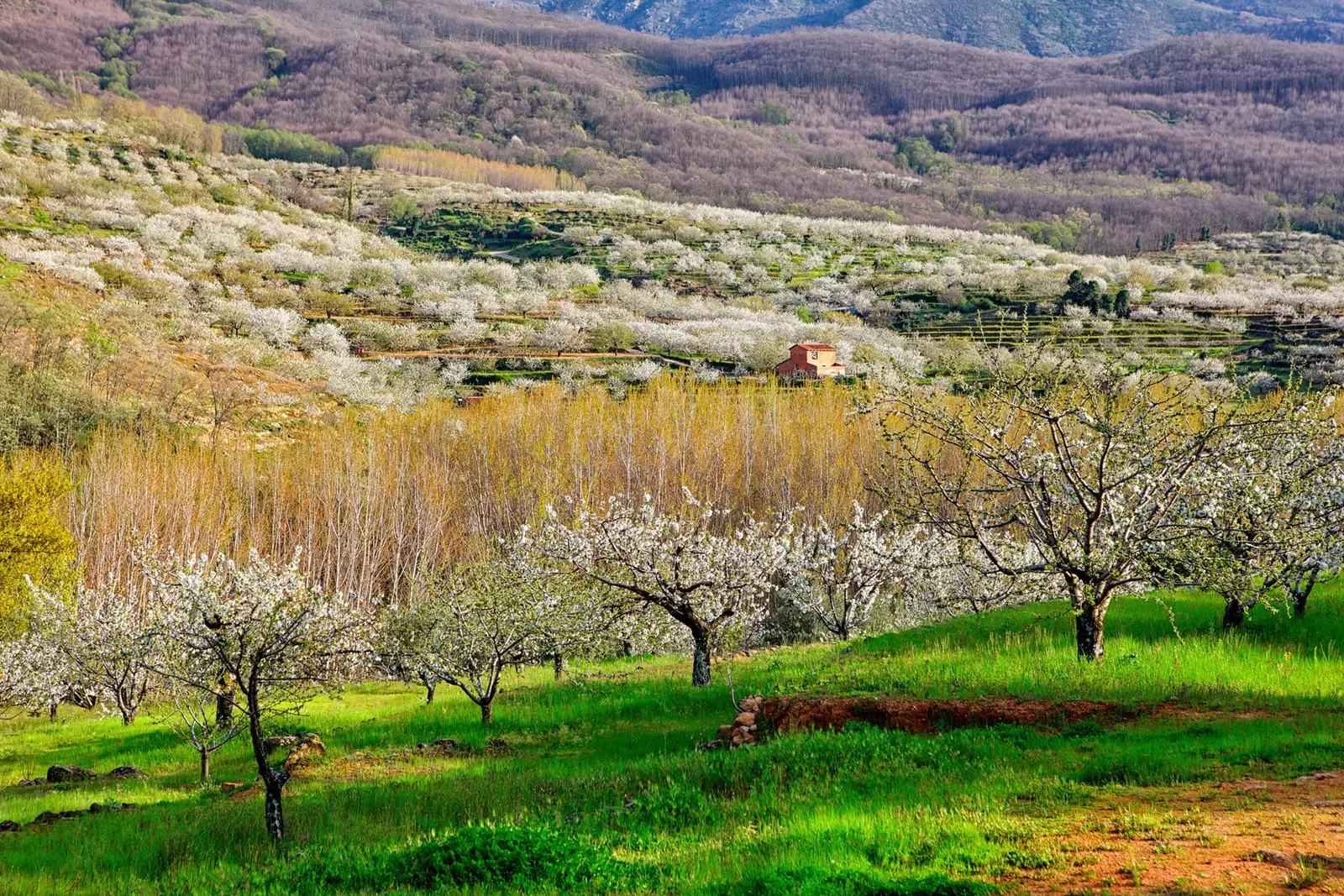
The cherry tree in bloom in the Jerte Valley is a festival of National Tourist Interest.
While the time comes when we can do it, we can travel through the books. “Literature serves to live longer. And to live better. More because you live lives that would not correspond to you or that you could not because your own life has a limited time. Literature allows you to live the life of other people, in other times and places, it is daydreaming. Just like watching a movie. Cinema is a dream machine. In fact, when the film ends and you go out on the street, it takes a while to adjust to reality, like when you wake up from a dream.
"The same thing happens with reading. It also has a therapeutic effect, in the sense that it is a balm that heals the wounds of life. In this time of confinement many people read more or watched more movies or noticed titles that they didn't have time for before. Literature is time, time that they give you. And it has a consoling effect. Heals the wounds of life. Both the writer and the reader.
